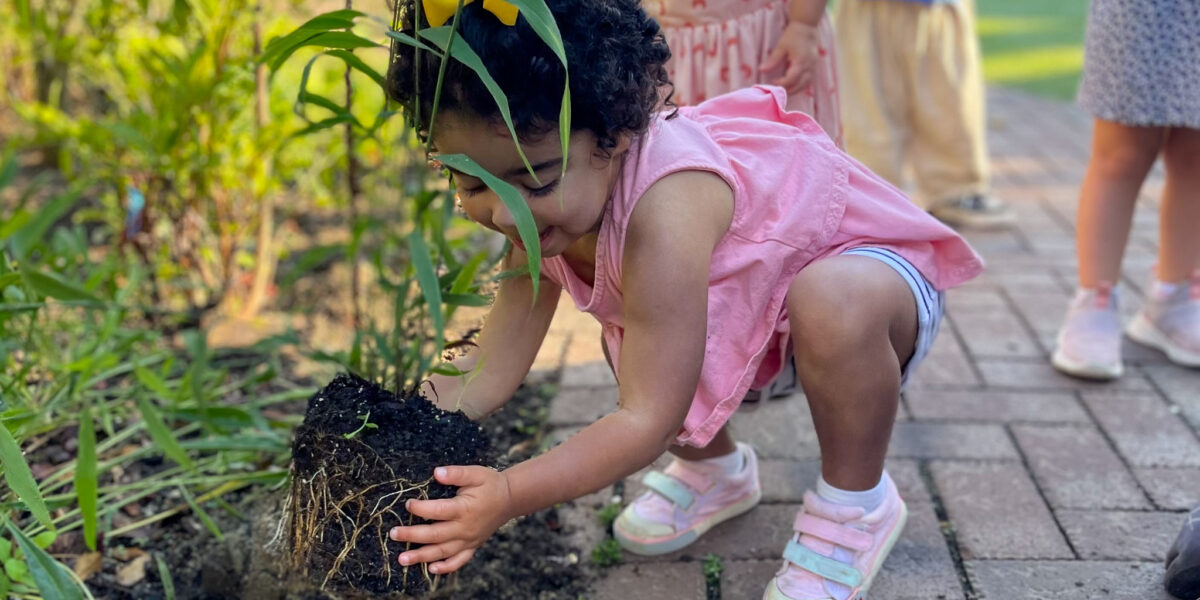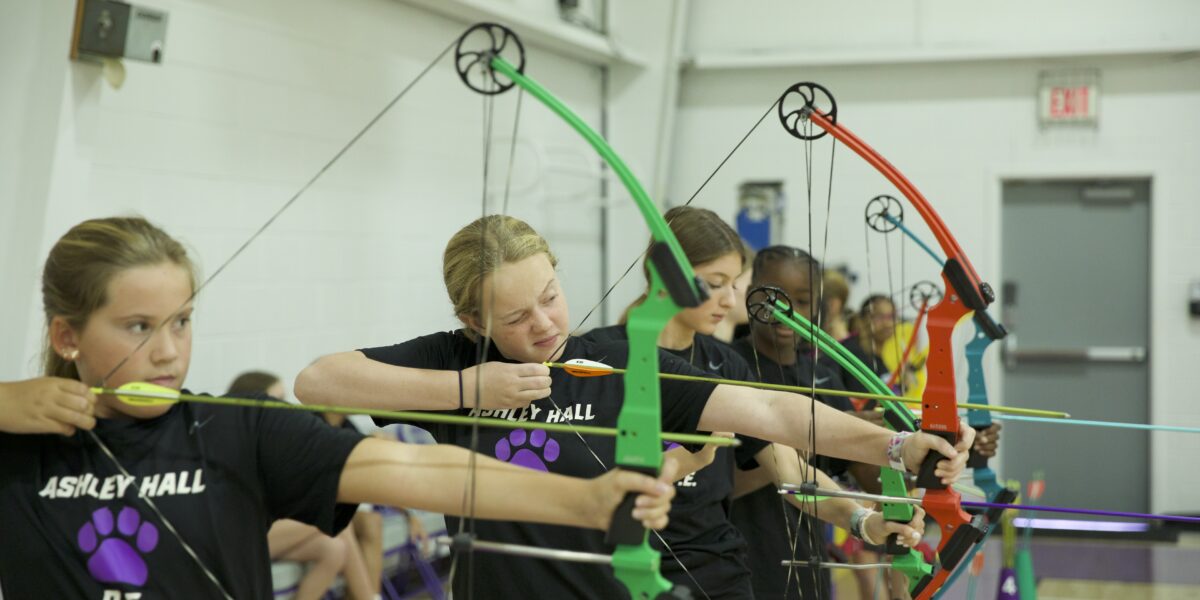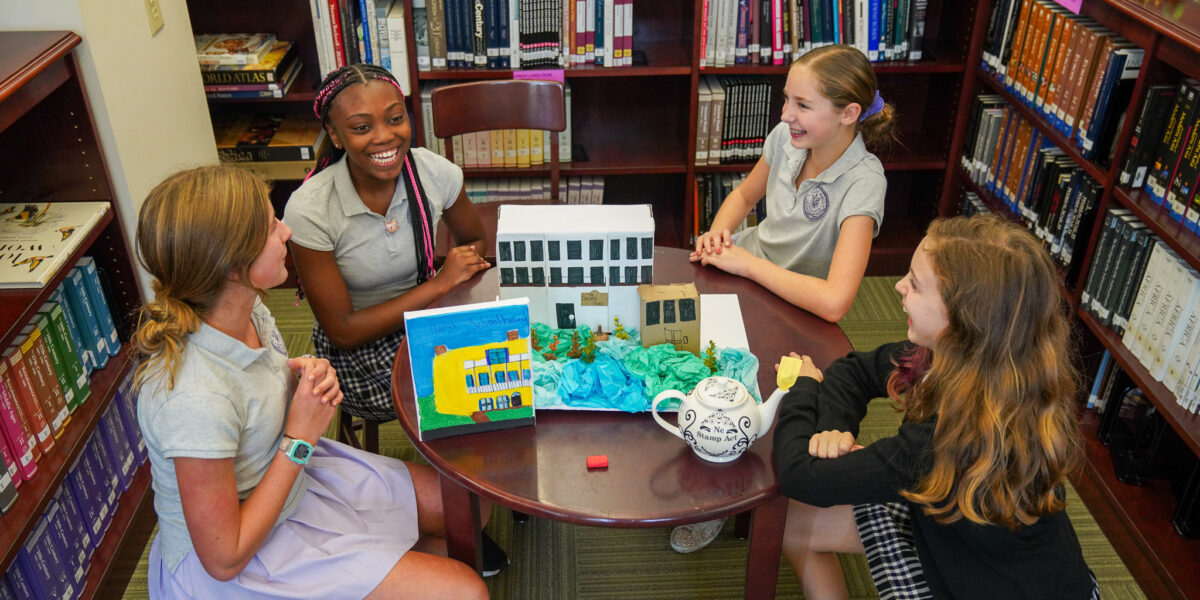Early School | Boys and Girls ages 2-5

Inspired by the practices of early education professionals in the Italian city of Reggio-Emilia, the Early School has adopted similar approaches to create what is called emergent curriculum— instructors collaborate with their students to design projects or investigations based on the students’ expressed interest. In this way, children’s innate curiosity becomes the engine of their learning. Students exposed to this approach tend to become more confident, more independent, and more capable of championing their own education, rather than relying passively on the direct instruction provided by a teacher. Even in these early years, students prove themselves increasingly capable of caring for their learning environment as well as for the needs of others, thereby taking initial steps toward becoming “ethically responsible” citizens.
Teachers become intimately aware of each student’s contribution to the collective community, encouraging collaboration while respecting individual students’ pace and performance. The practical skills and more academic understandings that students will inevitably need to succeed as they continue upward in The Learning Spiral emerge organically out of the investigations themselves. In this way, learning becomes an experience of discovery, of invention, and of wonder.
Early School Program Highlights:
- The program serves girls two to four years of age and boys two to five and is the only one of its kind in the Charleston area.
- All lead teachers and the director are fully qualified and hold master’s degrees in education. They work collaboratively to provide a prepared environment that promotes individualized learning through hands-on participation.
- Children are offered French class daily. Because young children best learn a second language through conversation, students are exposed to French through a modified immersion approach.
- The Early School features an atelier—or arts space—for the young students to weave creativity into their daily explorations. It is overseen by the atelierista—or arts teacher—who encourages the children to express their knowledge and observations through song, movement, and art.
- All early education grade levels enjoy weekly swim class throughout the year in the indoor pool.
The Lower School | Kindergarten through Grade 4

Students begin the transition from Reggio-Emilia-inspired instruction into a more modified approach which will equip them for the experience they will encounter in Kindergarten and throughout their years in Lower School. Although students do receive more directed instruction in grades Kindergarten through four, there remains a clear emphasis on other strategies consistent with emergent curriculum objectives. This is evident in our integration of academic standards into student-directed projects and more pronouncedly in our language arts instruction, which adapts techniques derived from the Units of Study, developed at the Teacher’s College at Columbia University. Reading and writing are taught through the workshop approach. These methods allow for students to become avid and skilled readers, writers, and inquirers. The programs stress the importance of each student directing the development of her own reading and writing projects, guided but not governed by formal instruction and peer review.
Class projects, designed and developed by students in a manner similar to the investigations conducted in our Early School, provide for collaborations allowing students to realize their own discoveries and thereby continue to feel more fully participatory in their own education. Such confidence is one of the crucial objectives of Ashley Hall’s mission, and we are constantly seeking to create opportunities for students to assume responsibility for their activities both in and out of the classroom. These collaborations encourage cross-curricular studies that reveal to the students how seemingly disparate ‘subjects’ are, in fact, mutually reinforcing disciplines—an understanding which lays the foundation for their future course work in Humanities and the interdisciplinary Oral Defense Projects and Senior Theses in Upper School.
Lower School Program Highlights:
- The Lower School offers a dedicated science laboratory with weekly hands-on instruction and field trips held throughout the year.
- A full-time guidance counselor serves on faculty offering individualized attention to the physical and emotional needs of each girl.
- Encouraging young female engineers, the Lower School features their own Lego team. Lego activities introduce students to real-world engineering challenges by having them build Lego-based robots that are coded to complete specific tasks.
- Everyday Math is a key component of the curriculum. Developed by The University of Chicago, Everyday Math emphasizes the application of math to real world situations.
- The Lower School literacy program uses the Units of Study, developed at the Teacher’s College at Columbia University, to foster a love of the written word and support students as they become independent, confident readers and writers.
- Every kindergartener takes violin or cello and all students have the opportunity to participate in a variety of music lessons including strings, piano, and guitar.
The Middle School | Grades 5 through 8

Perhaps nowhere along The Learning Spiral is the challenge to help our students acquire the skills they will need to “meet the challenges of society with confidence” more acute than in Intermediate Program. For girls, the ages between ten and fourteen are especially crucial to their physical, emotional, and intellectual development. Social concerns begin to occupy more of students’ time and attention at the same time as their academic duties become more and more demanding. Physiological changes can add to the cognitive dissonance girls are experiencing. Recognizing all of these factors, we have designed a two-year sequence of instruction for the fifth and sixth grades that emphasizes the Ashley Hall Hallmarks of compassion, discernment, collaboration, intelligence, creativity, purposefulness, and worldliness. A central component of this curriculum is our STEAM program—a cross-curricular project synthesizing students’ studies in science, technology, engineering, art, and mathematics. This approach includes introducing students to basic robotics and coding, while encouraging them to see more clearly the various ways in which these different disciplines overlap and interact in surprising ways.
Because these years are so transformative for our girls, we have taken pains to build a dedicated team of teachers who work closely with one another to coordinate their respective course contents and insure that each student is given the guidance she needs to make the transition from elementary school to the academic and social environment of Upper School (grades seven through twelve).
Intermediate Program Highlights:
- This two-year program is specifically designed for the pre-adolescent years and gives individualized attention to each girl during this critical time of emotional and physical development.
- Study skills are emphasized to ensure the student is ready for the fast-paced life of the Upper School.
- The STEAM (science, technology, engineering, arts, and math) program begins in the Intermediate Program. Young students are encouraged to explore and pursue these fields of interest that are traditionally underrepresented by women.
- Students participate in an arts rotation that exposes them to visual art and music.
- Confidence and self-expression are built through formal speech classes. Girls present on a continuous basis to their classmates as well as at special assemblies.
- Intermediate Program students participate in the School’s formal athletic program through Bantam sports such as volleyball, basketball, and tennis.
The Upper School | Grades 9 through 12

As students enter Upper School in Jenkins Hall, they experience a quickening pulse in every aspect of their lives. All of the preparation they have undergone in preceding years now begins to bear fruit in more sophisticated applications of their acquired skills and understandings. Humanities classes conducted as student-directed conversations around a Harkness Table encourage each student to participate on equal terms with her classmates in a manner reminiscent of the investigations she enjoyed as a child in the Early Education Center. The Oral Proficiency Interview (OPI) used to assess her fluency in French or Spanish reinforces her understanding of these languages as instruments with which to unlock the doors to other cultures and, at the same time, gives her confidence to be more fully a citizen of the world.
With each succeeding year, students in Upper School discover more opportunities to exercise their critical thinking through interdisciplinary studies such as those required by the Oral Defense Project (ODP), the Senior Thesis, and the Senior Project. Each of these activities include a public presentation at which students demonstrate their command of multiple disciplines as they pertain to a single essential question, thereby demonstrating their acquired authority in those fields of study.
As Upper School students prepare to venture out into the world beyond Ashley Hall’s physical boundaries, so too does that world come to our campus. The international boarding students who live in the Elizabeth Rivers Lewine ’54 House for Global Studies enrich the intellectual and cultural life of our community in countless ways. Their presence is a daily reminder that Ashley Hall exists in a network—not a virtual, but an actual worldwide web—of social, political, economic, and cultural communities. And students exit this level of the life-long learning spiral mindful of their obligations to those communities.
Upper School Program Highlights:
- Upper School’s younger students—seventh and eighth graders—receive individualized attention that ensures a successful transition into Upper School life.
- Beginning in eighth grade, students explore the humanities through the Harkness philosophy developed by Phillip Exeter Academy. Positioned around the oval Harkness table so everyone is seen and heard, students learn critical thinking by the sharing of ideas and opinions.
- College counseling begins in earnest during 9th grade preparing the student for the formal application process.
- The Upper School features a strong science program that emphasizes hand-on experiences. Students capitalize on partnerships with the Medical University of South Carolina working closely with leading researchers in various fields of medicine.
- Fine arts opportunities abound with many girls participating in the school’s renowned Red Choir and Show Choir or various theater productions. Visual arts are explored through sketching and painting as well as sculpture.
- The International Boarding Program begins in ninth grade and brings girls from around the world to study at Ashley Hall offering a global perspective to our campus.